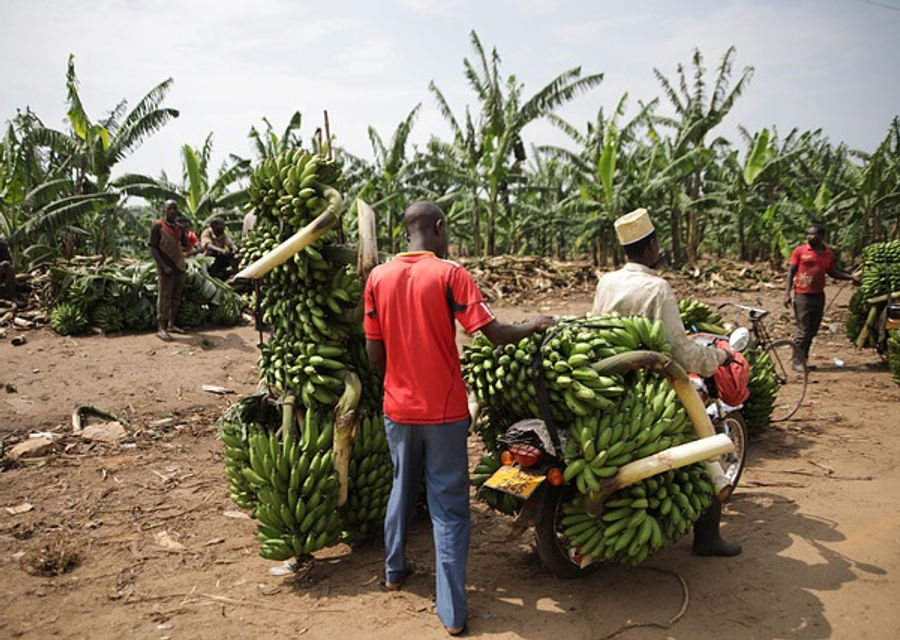Brazil US Trade: Meeting Cancellation and Tariff Impact
- THE MAG POST

- Aug 12
- 7 min read

The recent Brazil US trade discussions highlight the intricate dance of international commerce. When a Brazil-US meeting got canceled due to tariff disputes, it raised eyebrows and sparked concerns. It is a crucial reminder of how trade policies can affect global relationships. Now, Brazil is looking at other markets like Southeast Asia and working on deals with the EU. This shift shows how countries adapt when trade winds change, all to ensure their economies remain robust and resilient despite the ongoing Brazil US trade tensions.
The recent cancellation of a Brazil-US meeting has sparked considerable discussion regarding international trade and tariff negotiations. This development highlights the complexities involved in maintaining stable economic relations between countries, especially when trade policies and political factors intersect. Understanding the nuances of these interactions is crucial for businesses and policymakers alike, as they navigate the ever-changing landscape of global commerce. The implications of this canceled meeting extend beyond the immediate parties involved, potentially affecting broader trade dynamics and future negotiations. Therefore, a closer examination of the events leading up to this cancellation and its potential consequences is warranted to grasp the full scope of its impact on international trade and economic cooperation, particularly concerning Brazil US trade relations.
Impact of Brazil US Trade Tariffs on Global Commerce
The cancellation of the Brazil-US meeting, initially scheduled to address tariff issues, underscores the challenges in resolving trade disputes amicably. When nations fail to engage in constructive dialogue, the imposition of tariffs can disrupt established trade flows, leading to increased costs for businesses and consumers. For example, the U.S. imposing 50% duties on several Brazilian goods has created uncertainty and prompted Brazil to seek alternative markets. This situation highlights the importance of diplomatic efforts and open communication channels to prevent trade wars and foster a more predictable and stable global trading environment. Furthermore, the ripple effects of these tariffs can extend to other countries and industries, making it essential to consider the broader economic consequences of Brazil US trade tariffs.
Tariffs, such as the 50% duties imposed by the U.S. on Brazilian goods, directly impact the competitiveness of affected industries. These increased costs can make it more difficult for Brazilian companies to export their products to the U.S., potentially leading to reduced sales and profits. In response, businesses may need to adjust their pricing strategies, explore new markets, or even scale down their operations. Consumers in the U.S. may also face higher prices for imported goods, which can affect their purchasing power. Therefore, understanding the specific industries and products affected by Brazil US trade tariffs is crucial for businesses to adapt and mitigate potential losses. Moreover, governments need to consider the potential impact on employment and economic growth when implementing or responding to such measures.
The imposition of tariffs can also lead to retaliatory measures from affected countries, escalating trade tensions and creating a cycle of protectionism. When Brazil faces higher tariffs on its exports to the U.S., it may consider imposing tariffs on U.S. goods entering its market. This tit-for-tat approach can harm businesses on both sides, disrupting supply chains and increasing uncertainty. Such actions can also undermine international trade agreements and organizations, such as the World Trade Organization (WTO), which aim to promote free and fair trade. Therefore, it is essential for countries to exercise restraint and seek alternative solutions, such as negotiation and mediation, to resolve trade disputes and avoid the negative consequences of Brazil US trade tariffs.
Beyond the immediate economic impacts, tariffs can also have significant political implications. The imposition of tariffs can be seen as a sign of strained relations between countries, potentially affecting diplomatic ties and cooperation on other issues. In the case of the Brazil-US meeting cancellation, political factors, such as the trial of former President Jair Bolsonaro, appear to have played a role. When trade policies become intertwined with domestic politics, it can be more difficult to find common ground and reach mutually beneficial agreements. Therefore, it is important for policymakers to consider the broader political context when making decisions about Brazil US trade tariffs and to strive for transparency and consistency in their trade policies.
The long-term effects of tariffs on global commerce can be far-reaching, potentially reshaping trade patterns and altering the competitive landscape. As countries seek to diversify their markets and reduce their reliance on specific trading partners, new trade routes and alliances may emerge. For example, Brazil's increased focus on Southeast Asia and its efforts to advance a trade deal with the European Union reflect a strategy to mitigate the impact of U.S. tariffs. These shifts can create both opportunities and challenges for businesses, requiring them to adapt to new market conditions and regulatory environments. Therefore, understanding the potential long-term implications of Brazil US trade tariffs is crucial for businesses and policymakers to make informed decisions and plan for the future.
Exploring Alternative Markets Amid Brazil US Trade Tensions
The cancellation of the Brazil-US meeting has prompted Brazil to actively explore alternative markets to reduce its dependence on the U.S. market. This strategic shift involves identifying regions with strong growth potential and establishing trade relationships that can provide stability and diversification. Southeast Asia, with its dynamic economies and growing consumer base, has emerged as a key target for Brazilian exports. By expanding its presence in these markets, Brazil aims to mitigate the impact of U.S. tariffs and create new opportunities for its businesses. This diversification strategy is essential for ensuring the long-term resilience of the Brazilian economy in the face of Brazil US trade tensions.
Southeast Asia presents a promising market for Brazilian goods due to its rapid economic growth and increasing demand for a variety of products. Countries like Vietnam, Indonesia, and the Philippines are experiencing significant growth in their manufacturing and consumer sectors, creating opportunities for Brazilian exporters. Brazil can leverage its strengths in agriculture, mining, and manufacturing to supply these markets with commodities, processed foods, and industrial goods. Furthermore, the region's growing middle class is driving demand for higher-quality products, which Brazilian companies are well-positioned to provide. Therefore, focusing on Southeast Asia is a strategic move for Brazil to diversify its export markets and reduce its vulnerability to Brazil US trade policies.
In addition to Southeast Asia, Brazil is also prioritizing the advancement of a trade deal between the South American bloc Mercosur and the European Union. This agreement would create a vast free trade area, encompassing some of the world's largest economies. By reducing tariffs and other trade barriers, the deal would facilitate increased trade flows between the two regions, providing new opportunities for businesses and consumers. The successful conclusion of this agreement would be a significant step towards diversifying Brazil's trade relationships and reducing its reliance on the U.S. market. Therefore, Brazil's efforts to strengthen ties with the EU are crucial for mitigating the impact of Brazil US trade disputes.
Diversifying export markets requires a concerted effort from both the government and the private sector. The government can play a key role by negotiating trade agreements, providing export financing, and promoting Brazilian products in international markets. Businesses, on the other hand, need to invest in market research, adapt their products to meet local preferences, and establish distribution networks. Collaboration between the public and private sectors is essential for overcoming the challenges of entering new markets and building sustainable trade relationships. Therefore, a coordinated approach is needed to ensure that Brazil can successfully diversify its export markets and reduce its vulnerability to Brazil US trade policies.
Exploring alternative markets is not only a defensive strategy to mitigate the impact of U.S. tariffs but also an opportunity to unlock new growth potential for the Brazilian economy. By diversifying its trade relationships, Brazil can reduce its dependence on any single market and create a more resilient and dynamic economy. This diversification can also lead to increased innovation and competitiveness, as businesses are exposed to new ideas and technologies. Therefore, Brazil's efforts to explore alternative markets are crucial for ensuring its long-term economic prosperity and reducing its vulnerability to Brazil US trade disputes.
Government Measures to Counteract Brazil US Trade Policies
In response to the higher U.S. tariffs, the Brazilian government is preparing to issue an executive order aimed at mitigating the impact on affected businesses. This order will include a range of measures designed to support exporters, promote domestic production, and diversify trade relationships. The government's proactive approach reflects its commitment to protecting Brazilian businesses and ensuring the stability of the economy in the face of Brazil US trade challenges. The executive order is expected to address several key areas, including export guarantees, government procurement, and credit measures, providing a multi-faceted response to the complex challenges posed by the tariffs.
A key component of the executive order will be structural reforms to Brazil's export guarantee mechanisms through the Export Guarantee Fund (FGE). The FGE provides insurance to exporters against the risk of non-payment by foreign buyers, encouraging them to expand their sales to new markets. By strengthening the FGE, the government aims to make it easier for Brazilian businesses to access export financing and reduce their exposure to risk. These reforms may include increasing the fund's capital base, streamlining the application process, and expanding the range of risks covered. Therefore, strengthening the FGE is a crucial step in supporting Brazilian exporters and mitigating the impact of Brazil US trade policies.
The executive order will also support certain government purchases, prioritizing Brazilian-made goods and services. This measure aims to stimulate domestic production and create demand for Brazilian products, offsetting the potential decline in exports due to the U.S. tariffs. By increasing its reliance on domestic suppliers, the government can also reduce its dependence on imports and strengthen the local economy. This policy may involve setting targets for the percentage of government purchases that must be sourced from Brazilian companies and providing incentives for government agencies to prioritize local suppliers. Therefore, supporting government purchases of Brazilian goods is a key element of the government's response to Brazil US trade policies.
In addition to export guarantees and government procurement, the executive order will include credit measures designed to provide financial relief to affected businesses. These measures may include offering subsidized loans, extending repayment periods, and reducing interest rates. By providing access to affordable credit, the government aims to help businesses weather the storm and maintain their operations. These credit measures may be targeted at specific industries or regions that are particularly vulnerable to the impact of the U.S. tariffs. Therefore, providing credit support is a crucial component of the government's efforts to mitigate the impact of Brazil US trade policies.
The Brazilian government's multi-pronged response to the U.S. tariffs reflects its recognition that there is no single solution to the complex challenges faced by the affected businesses. By combining export guarantees, government procurement, and credit measures, the government aims to provide a comprehensive package of support that addresses the diverse needs of the roughly 10,000 companies affected. The success of this strategy will depend on effective implementation and coordination across government agencies, as well as close collaboration with the private sector. Therefore, a coordinated and comprehensive approach is essential for mitigating the impact of Brazil US trade policies and ensuring the long-term resilience of the Brazilian economy.






















































Comments